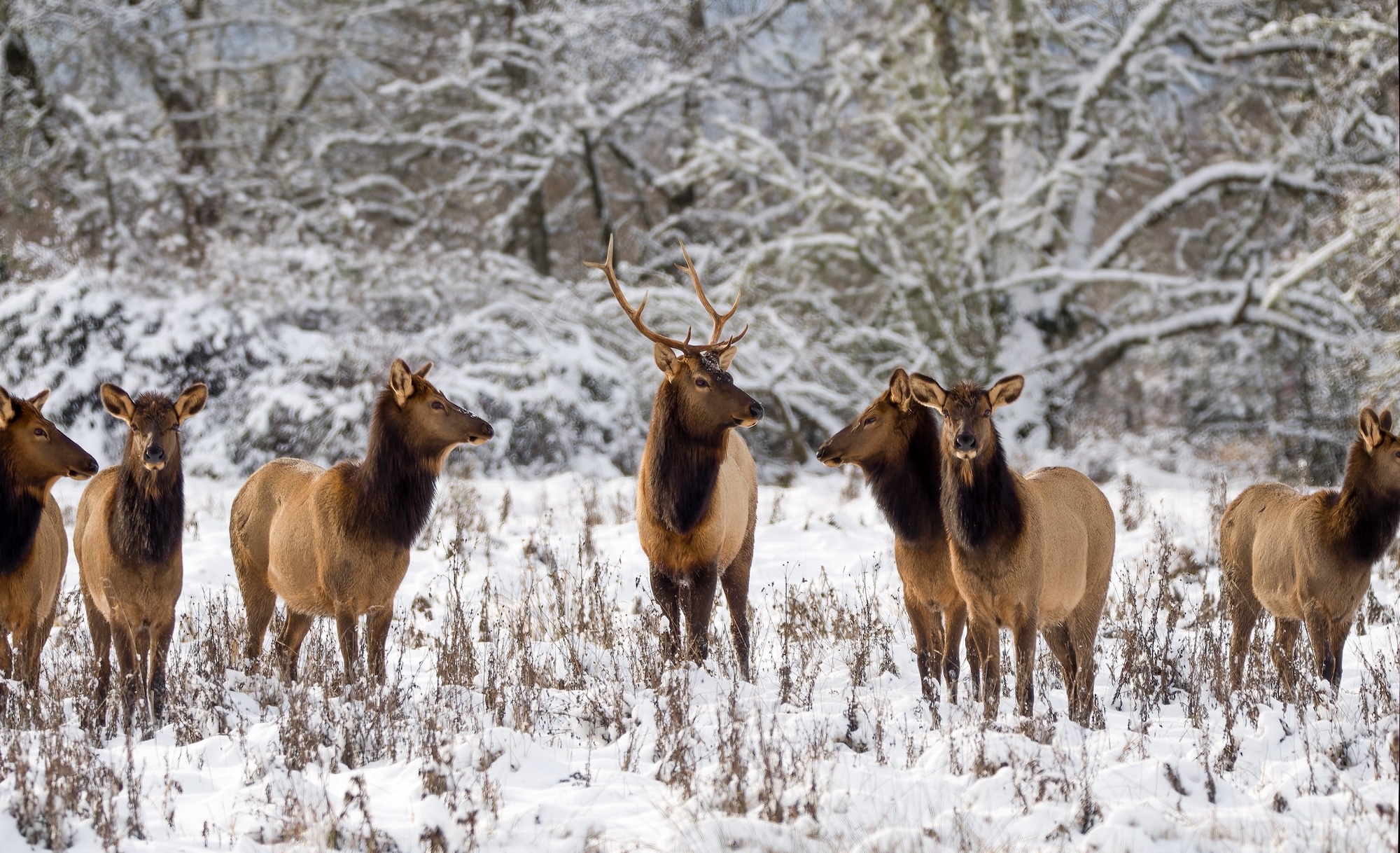A controversial report on the purpose, function, and effectiveness of Washington’s Fish and Wildlife Commission has revived angst among anglers and hunters over a perceived takeover of the polarized board by anti-hunting activists.
The report, funded by a $300,000 legislative appropriation in 2023 and released to the public last month, considered alternatives to the current 9-member commission that guides policies and priorities of the state’s Department of Fish and Wildlife (WDFW). The Capital Press broke the story on the document, called the Ruckleshaus Report as it was prepared by Washington State University’s William D. Ruckelshaus Center in the university’s school of public policy and governance.
Agency reform has been a priority of about 50 preservationist groups in the state that think the commission disproportionately represents hunters and anglers. One of the Ruckleshaus Report’s recommendations, that the WDFW be folded into a cabinet agency with its director appointed by the governor, has been opposed by sportsmen’s groups that think it would further politicize the agency in a deeply blue state.
That outcome appears to be an enduring goal of preservationists, though. Those groups supported failed legislation last year to disband the commission and require the agency director to be appointed by the governor.
This tension – with preservationists urging the agency to manage for biodiversity and whole-ecosystem health and hunters and anglers advocating for traditional fish-and-game management – is at the heart of not only the agency’s identity crisis but the “dysfunctional elements” identified in the report.
The 76-page document synthesizes interviews with over 100 participants familiar with the agency and commission and concludes that, in order to maximize the effectiveness of WDFW, the commission should make “comprehensive, simultaneous reform.”
Alternatively, if there isn’t sufficient political will or interest in reform, then the report recommends the commission should be dissolved and the department moved to a cabinet-level agency with its director appointed by the governor. Currently, commissioners are appointed by the governor and commissioners hire the director of the agency, which is a non-cabinet department.
The third option, status quo, is widely considered to be an unproductive continuation of conflict between hunters and anglers and those who want the agency to prioritize biodiversity and ecosystem health ahead of individual game species.
That conflict has resulted in simmering hostility over the past few years in Washington, as the commission has become dominated by ecologists who have de-emphasized the role of hunting in ungulate management and elevated principles of landscape health. Highly charged commission meetings have degenerated into either shouting matches or chilly impasses with agency personnel sometimes paralyzed in the middle.
The report, delivered by one of the most respected public-policy research entities in the Northwest, highlighted some of this negative energy, and offered a wide-ranging perspective on the operating landscape of the agency and commission as well as the stark recommendations for its future: fix it, or eliminate and re-invent it.
The report was prepared for the Washington State Legislature, which convened this week. Legislators could act on the report’s findings, but most sources expect fish-and-game reform to be a low priority as the legislature tackles Washington State’s projected $12 billion revenue shortfall.
Considering the polarized atmosphere around fish-and-wildlife management in Washington, and given the recommendations of the high-profile Ruckleshaus Center report, last-minute Fish and Wildlife Commission appointments last week by Washington’s outgoing governor are especially rankling for residents who would like to see reforms implemented sooner than later. The governor appointed two commissioners without consulting traditional constituencies. The report had suggested that one source of commission dysfunction is the opaque appointment process.
“The governor [outgoing incumbent Democrat Jay Inslee] presumably had this report in his hand while he was doing interviews for these appointments,” observes Dan Wilson, board member for Washington’s chapter of Backcountry Hunters & Anglers. Wilson was one of the interviewees in the Ruckleshaus Report. “First, I’d question whether it was Inslee’s role to make these appointments, since he has had 12 years to appoint commissioners. It would have been appropriate to defer appointments to his successor [incoming Democrat Bob Ferguson]. The easy way to address reforms is to just start with accountability, transparency, and ensuring that the people appointed to make these decisions have a firm grasp of policy, process, and all the diverse interests and perspectives in wildlife management.”
While the Ruckleshaus Report’s conclusions about the need for structural reform have grabbed most headlines, the document is required reading for its insights into an agency and commission dealing with seismic changes in natural-resource management.
Conflict is a predictable outcome of change, says Claire Davis, founder of Washington Wildlife First (WWF), the most vocal of Washington’s preservationist groups that advocates for “a paradigm shift in Washington’s management of its fish and wildlife to focus on conservation as its key objective, rather than consumption.” Davis was also interviewed for the Ruckleshaus Report.
“What some people label ‘dysfunction,’ we see as a product of the commissioners doing their best to fulfill this challenging role, by digging into difficult issues, asking hard questions, and publicly debating topics about which both the commission and the public are divided,” says Davis, who is also WWF’s president and executive director. The organization is allied with commissioners pushing the broader preservation mandate.
“Many prior commissions have essentially served as rubber stamps for department management,” she says. “Rubber stamps might seem ‘functional,’ but it makes no sense for the commission to exist if it operates that way. We believe disagreement among commissioners is healthy…. It does not serve the public well if it tries to bury those disagreements rather than airing them.”
A Restrained Report
Given all the heat around the conflict in Washington’s natural-resource management, the Ruckleshaus Report is actually a pretty measured and useful roadmap for reform, says BHA’s Wilson.
“I think the report is objective and insightful,” he says. “A couple of sitting commissioners have dismissed it as a public-opinion survey. That’s not what a qualitative survey of this level is. The 100 people interviewed weren’t random survey respondents. They were tribal leaders, heads of various organizations, active political people, and every commissioner. So the findings should not be easily dismissed.”
The report considered WDFW governance structure and funding model, and assessed the agency’s responsibility as trustee of public wildlife resources. The report further evaluated the process by which the agency uses science and social values in decisions, influence on WDFW by special interest groups, WDFW’s ability to “meet threats created by climate change and biodiversity loss,” and outreach and involvement of residents who have historically been excluded from fish and wildlife decisions.
Neither the agency nor the commission has responded to the report, except to confirm its receipt.
Before detailing its recommendations, the Ruckleshaus Report outlined what interviewees cited as problems with the commission and agency.
The report described the commission as “dysfunctional, politically polarized, and caught up in conflict” and cited “lack of clarity about accountability of the commission, not only its decisions but individual commissioners’ actions, representation, and participation.” Lack of clarity causes tensions and hinders the effectiveness of the commission, wastes time, and puts significant stress on individual commissioners, the report noted.
Among the report’s myriad observations is that many interviewees “voiced a desire for cooperation among interest groups with a focus on collaboration and working together to solve problems versus division and litigation.”
Specifically, some sources urged the commission to “take a more proactive role to address tensions and disharmony resulting from Commission decisions. Decisions about cougar and wolf management and the spring bear hunt arose repeatedly as examples where more could have been done to mitigate conflicts and arguments. Interviewees talked about how public testimony at meetings on issues known to be contentious only fuels the conflict and perpetuates a perceived division of ‘harvest vs. protection.’”
The report also identified areas for improvement, including elevating the commission’s relationship with Washington’s tribes, improving coordination across agencies and within different divisions of WDFW, increasing agency capacity to implement the state’s wildlife action plan to recover species of greatest conservation need, connecting fish and wildlife management to the state’s growth management plans, and partnering with private landowners.
“Overall, the report identified things that can be addressed at the commission level by the commission,” says Wilson. “But that would take ownership by this commission of their own shortcomings, and a willingness to improve themselves collectively, and I don’t see a lot of interest in or appetite for that. The worrisome thing I see is that the commission doesn’t see a need to correct itself. Which ties back to the dismissal of a report done by a respected organization that just cost taxpayers $300,000.”
A Mixed Mandate
The Ruckleshaus Report focused on one source of conflict: the legislative mandate of the Washington Department of Fish and Wildlife and its commission.
The mandate’s second sentence directs that “The commission, director, and the department shall preserve, protect, perpetuate, and manage the wildlife and food fish, game fish, and shellfish in state waters and offshore waters.” The mandate later states that “the commission shall attempt to maximize the public recreational game fishing and hunting opportunities of all its citizens.”
“Many talked about the core elements of the mandate — ‘preserve, protect, and perpetuate fish and wildlife’ and ‘maximize hunting and fishing opportunities’ — as being seen amongst interest groups as a competitive dichotomy and a major source of disruptive conflict,” the report states. “Several interviewees talked about how the relationship between these goals is more complex than that, and they are in fact intertwined. Interviewees described a future where people see these goals as in service of one another, with more opportunities for mutual-gain outcomes.”
BHA’s Wilson agrees the mandate’s interpretation increases friction.
“There’s some disparity in how individual commissioners interpret their role and responsibility,” he observes. “Are they there to advance a particular interest group? Are they there to safeguard and promote the mandate that conforms to their own worldview? Depending on the commissioner, there’s an interpretive hierarchy in how they apply the dual mandate. Some think that ‘preserve’ is the primary thing and that it exists completely independent of ‘while maximizing opportunity.’ That causes dysfunction.”
Wilson, who reads the mandate as unified — “We do these things and these other things all at the same time” — says it’s fueling much of the current vitriol in the state.
Related: Conservation vs Preservation: What’s the Difference?
“Things have gone sideways because certain groups have said that the preservation part needs to take priority over the opportunity part,” he says. “So if your first interest is preservation, then hunting opportunity is where to make the first cuts if there’s any concern over preserving, protecting, and perpetuating. But wildlife management is more complicated and nuanced than that.”
He provides the example of Washington’s struggling mountain goat population, which has dropped by nearly half over the past decade.
“The commission is talking about eliminating hunting opportunities for mountain goats, but hunting is not why our mountain goats aren’t doing well,” says Wilson. “So it hyper-targets a minority group in Washington to face a consequence that won’t address the fundamental underlying causes” of goat decline, which probably include climate change, shrinking habitat, and disturbance by backcountry hikers.
Wilson says instead of collaborating on solutions, “radical voices are really dictating the conversation right now. I think the commission realizes there’s this gulf between traditional stakeholders and emerging stakeholders, but they don’t feel the responsibility to bring them together. They think those groups need to learn to work together outside the commission room, and I think that’s an abdication of leadership.”
Looking Ahead
By its legislative proviso, the Ruckleshaus Center is required to “provide options for making changes to the department’s mandate and governance structure as deemed necessary to improve the department’s ability to function as a trustee for state fish and wildlife.” The document outlines three basic ways forward for the commission. It can be dissolved by the legislature and reconstituted as a cabinet-level agency with its director appointed by the governor, and its commission reinvented as a policy advisory board. It can maintain its status quo, an option that “would not fully address the issues interviewees raised and may limit the agency’s ability to maximize its effectiveness into the future.”
Or the commission could be retained but made more effective with “comprehensive, simultaneous reforms,” according to report authors. Some of those reforms could be clearly defining the roles, appropriate communication, and levels of authority among commissioners, director, and staff; establishing conflict-resolution mechanisms; increasing engagement with tribes; changing the commissioner appointment process; adding staff support for the commission; providing collaboration training; improving public-engagement processes; and utilizing third-party facilitators for meetings.
The report specifically notes that one reform should “strengthen criteria for the makeup of the Commission to ensure Commissioners see their role as representing all interests in the state vs representing special interests.”
The report’s reform option would be hard work, but it has the support of Washington Wildlife First as well as groups on both sides of the preservation/consumption divide.
“The commission has said that it plans to discuss the report at upcoming committee meetings and hold a session in March that will be focused on the report and next steps,” says WWF’s Davis. “The commissioners have a big task before them to find reforms that will allow the commission to function better within the current structure, but we think they should have the opportunity to try.”
BHA’s Wilson supports the reform option, but stresses its success will hinge on the commission’s willingness to change.
“The report provides guidance to the commission on how it could self-correct and it provides the legislature a basic framework of the challenges around wildlife management in this state right now. I would hope the commission would use this as a tool to reflect and design better guardrails.”
Wilson says moderate voices on both sides are eager to support an effective commission, given the wide range of conservation urgencies that require department attention. Whether the 2025 legislature takes up the issue of commission reform is anyone’s guess.
Read Next: In Wisconsin, Home of the Sandhill Crane Recovery, Legislators Are Now Considering a Hunt
With the legislature dealing with a massive budget shortfall, the Ruckleshaus Report will probably feel like a side note to the legislature, says Wilson.
“But it’s an important side note. Washington deeply values its natural resources and wildlife, and we don’t spend nearly as much money as we could on it, which makes it really important that we manage it efficiently and without political interests involved. We just need to lower the controversy around it. Everybody could work better if they’re not dealing with a fire in the next room.”
Committees in both the Washington Senate and House are scheduled to hold work sessions next week with Ruckleshaus Center staff on the report. The committees are not expected to take public input and it’s unclear if any legislation might come out of the work.
Read the full article here




